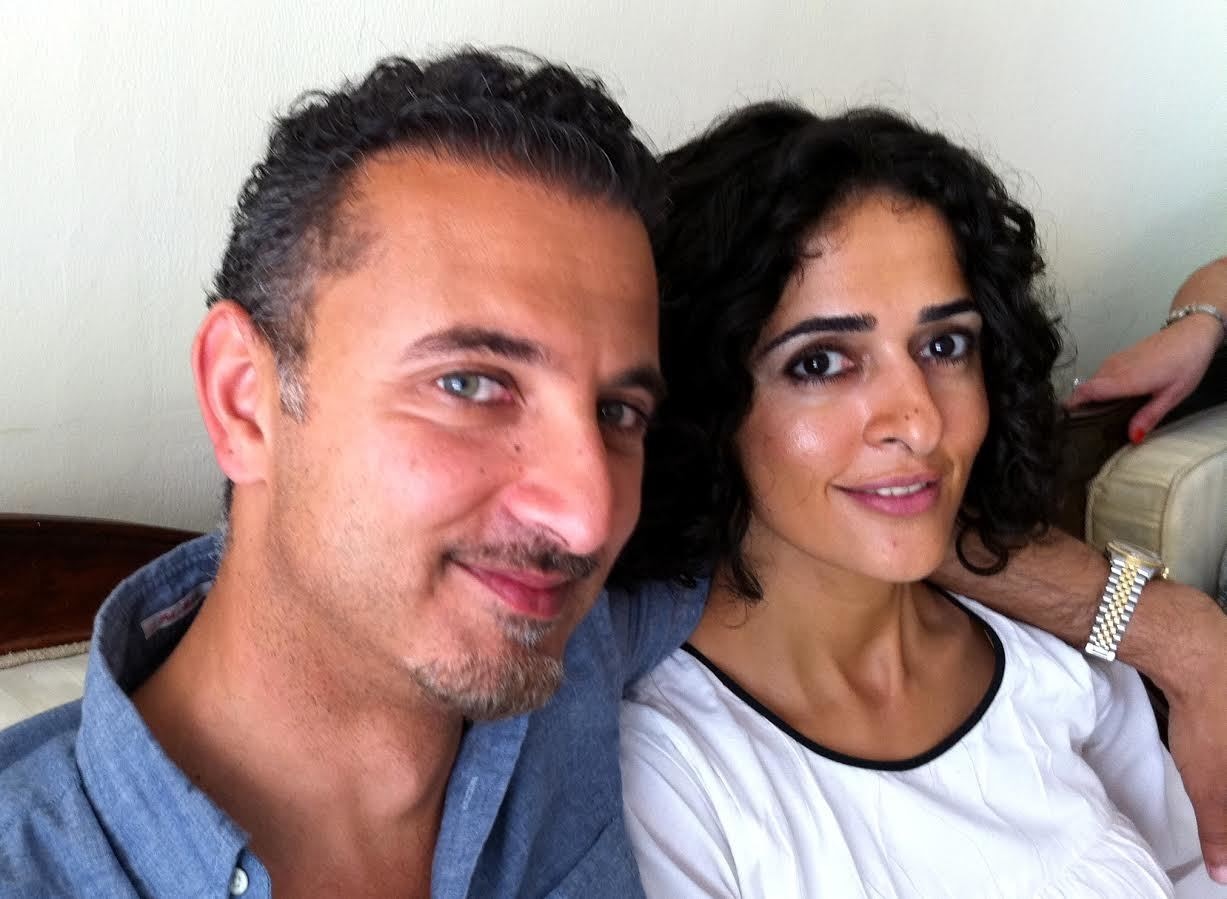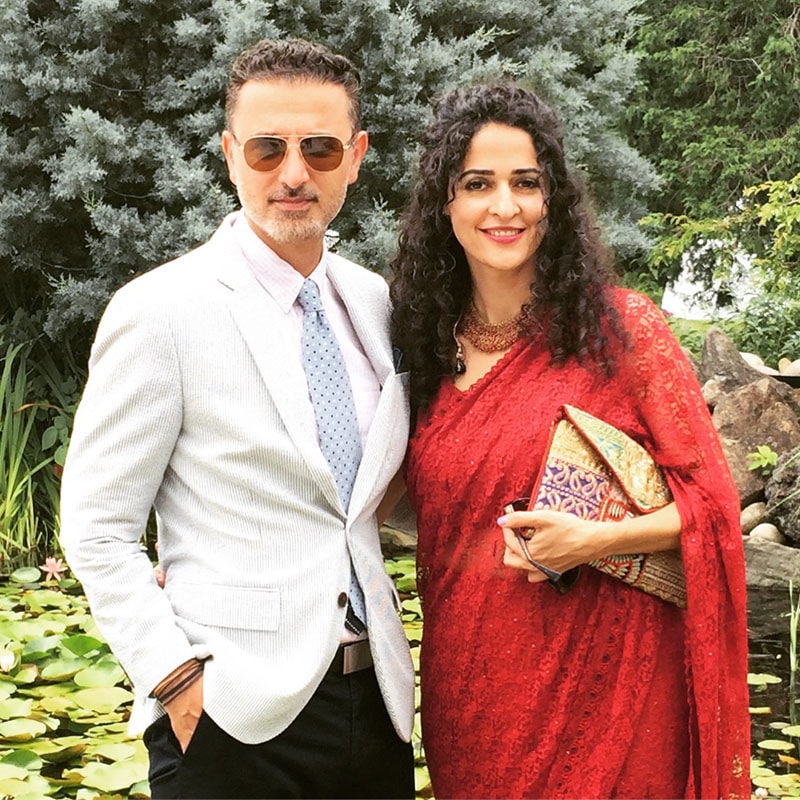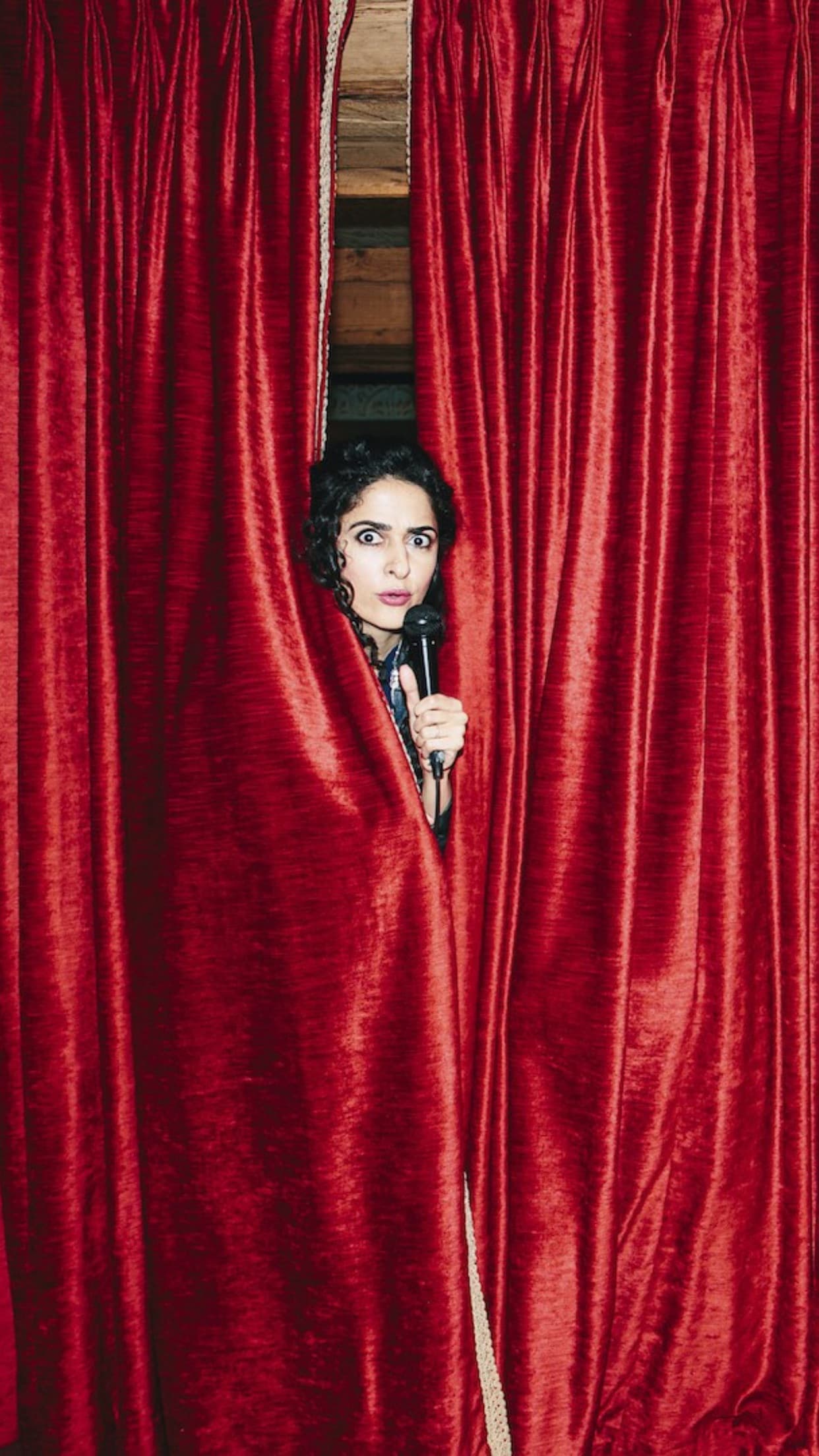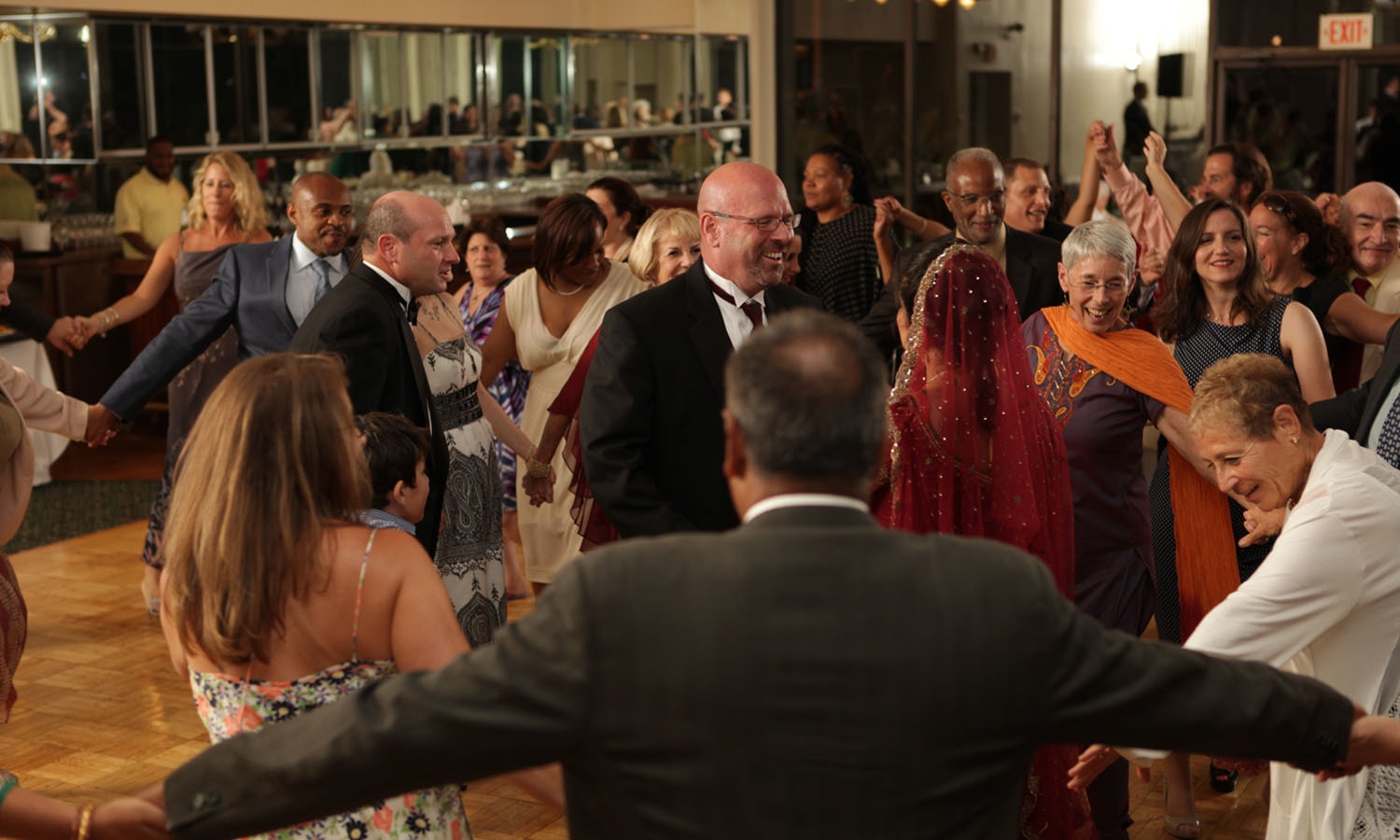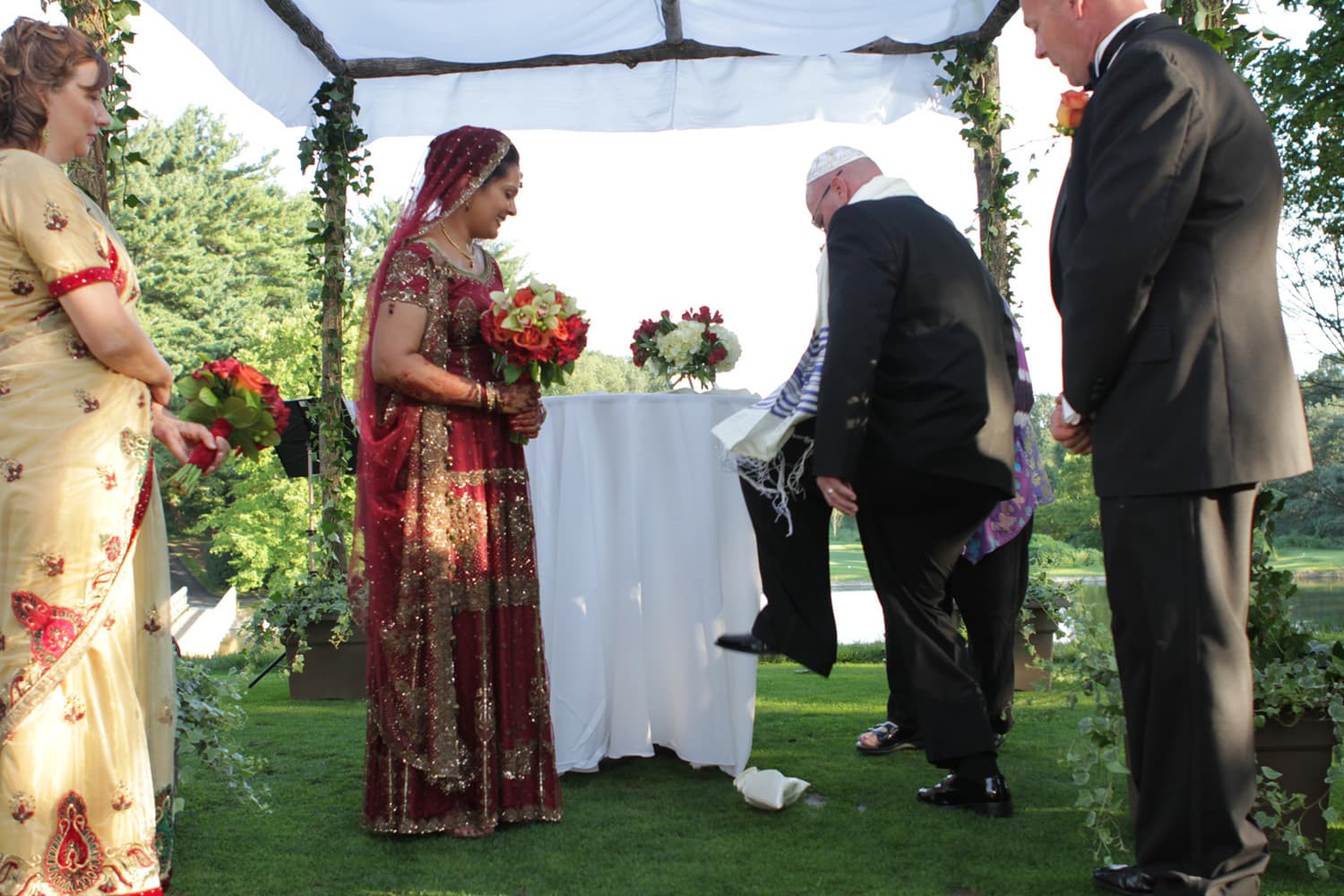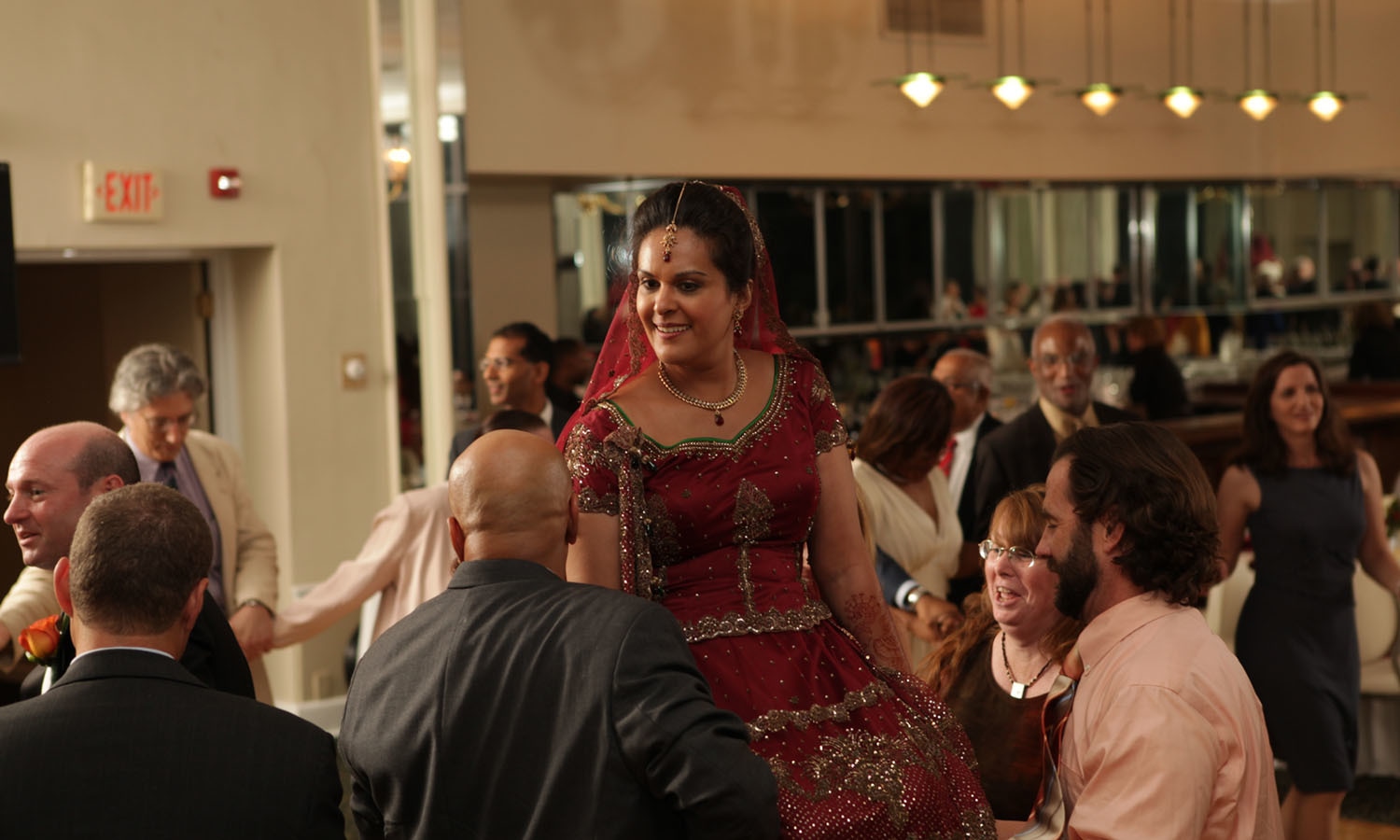How Pakistani-Americans are entering interfaith and interracial marriages — and making them work
"I rebelled. I said 'I'm going to marry whomever I want.'"
FAHAD NAVEED |
HUFSA CHAUDHRYUpdated about 2 hours ago
Saks and Suzie’s Pakistani-Palestinian-American-Muslim family
Saks Afridi and Suzie Afridi. — Photo courtesy Saks Afridi
Fifteen years ago, at a crowded picnic in Redwood City, California, young college student Saks (short of Sakib) Afridi couldn’t help but notice Suzie — “a girl with the most beautiful curly hair”. He tried his best lines to charm her and they worked.
But as she smiled and the two made conversation, one thought tormented her: “Please let this man be a Christian,” she said to herself — only to learn that he is Pakistani, Pushtoon and Muslim.
Suzie was born to a Greek Orthodox Christian family in Jericho, Palestine. Her family was “ethnically cleansed and pushed out” of their hometown when she was 13. It was at this time that she came to the United States.
“We were absolutely forbidden from falling in love with Muslims…” she says.
“The Muslim world needs civil marriage laws… a lot of the time people risk death to be able to get married.”
Her “heart sank” as she thought of what her family’s reaction would be to her dating a Muslim. But it was too late. She was already falling for Saks; soon enough, the two were making plans to see each other again.
“I told her I’m leaving [for New York] day after tomorrow and we have to meet before that,” Saks recalls. He also did a “very Pakistani thing” to assure Suzie that he is not “crazy” — he told her that they should both bring a friend along and do a “group thing”.
The date went so well that he postponed his flight for a week later; the two met every day while he was in Redwood City. There was no turning back; hereon their relationship went from strength to strength.
“We started learning each other’s languages,” Suzie shares. He began taking Arabic lessons from a teacher he fondly refers to as “an institution”. She started to learn Urdu.
They decided it was time to get the families involved.
The job was not difficult for Saks.
His father’s job as a PIA pilot meant that the family spent a significant chunk of their lives in different countries, exposed to new cultures. Saks, who was born in Peshawar, moved to Libya as a five-year-old and went on to live in Sri Lanka, Pakistan, UAE, Saudi Arabia, South Africa and the US. “We led a very well-rounded life, and half of it was spent exploring and figuring out how to cope with different environments and new cultures. I think that really helped us become more open-minded,” he says.
When he told his parents he has met and fallen in love with a Palestinian Christian girl they were forthcoming. It helped that Suzie made great first impressions on the family and “won all the aunties over” with an Urdu phrase, “
Aap se mil kar buhut khushi hui [Very nice to meet you]”.
Suzie, however, did not expect the same enthusiasm from her family. “By the time I was 10, I knew that when a Christian girl falls in love with a Muslim boy she is either disowned, her mother-in-law gets a heart attack or she dies in an honour killing,” she says.
She couldn't help but think about a woman in her neighbourhood, back in Jericho, who mysteriously disappeared; it was later learnt that she was murdered by her brother because, “she fell in love with a Muslim”.
Saks and Suzie wanted to "absorb" as much of each other's culture as possible. — Photo courtesy Saks Afridi
Fearing the worst, she broke the news to her family.
As predicted, her attempts to get them to accept Saks did not bear fruit. While she managed to win over her mother, one sister and one brother, others were not on board. “My brother was appalled at the position I had put him in; his father-in-law is a priest.”
Tragically, one day her oldest sister declared: “Suzie, we are disowning you.”
Her brother-in-law told her mother, ‘You don’t know how to raise girls.’
Suzie was devastated.
“It was very tough… there were times I just wanted to give up because they just couldn’t get over the fact that he is Muslim. But I rebelled. I said ‘I’m going to marry whomever I want’.”
“What’s killing us [Palestinians] is not colonialism or the occupation; what’s killing us is the patriarchy. Having to deal with the male ego is what’s standing in our way,” she says.
“There is this saying in Arabic,
‘kalaam al nas’, which literally means, ‘What will people say?’ This is the dictator in our heads which stops us from doing things,” she tells
Dawn.com.
She believes that this thought process and patriarchy are the deadly combination that makes a family’s perceived ‘honour’ more
valuable than a woman’s life.
“The Muslim world needs civil marriage laws… a lot of the time people risk death to be able to get married,” she says.
After a year-long struggle, the couple finally got married. At the wedding, Suzie recalls her cousin telling her, “Suzie, you did what we could not do”. Her cousin had been in love with a Muslim doctor, but wasn’t allowed to marry him.
Today, Suzie and Saks have a boy. She has converted to Islam and their son is a “Pakistani-Palestinian-American-New Yorker-Muslim kid,” says the mother.
Suzie is a standup comedian in New York. She is working on a book titled 'I Married a Muslim and No One Died'. — Photo courtesy Saks Afridi
The couple lives in New York, he is a
graphic designer and she is a
standup comic. Suzie manages to find the funny in her situation and is currently writing a book titled
I Married a Muslim and No One Died.
Both Suzie and Saks recognise that they could not have led this life in their respective home countries, but maintain that they are still “very much Arab and Pakistani”. “To love a Pakistani is to love Pakistan. You have to love Pakistan,” Suzie says.
“I think we both wanted to absorb and learn as much as we could about each other’s cultures,” Saks adds. The learning continues to this day. Being open to different cultures is the only way to fight racism, they believe.
“I don’t use the word ‘assimilated’, because it means you’ve lost something,” the comic says. Instead she likes using the word ‘acculturated’. “That is like you pick and choose, like cafeteria style.”
The couple has built a life for themselves and their son, despite their detractors’ predictions that it wouldn’t work.
Suzie recalls, “For the longest time they [her family] were waiting to see if Saks turns out to be the ‘big, bad Muslim on TV’. The narrative was always the same, ‘He will marry another woman; kidnap his children; beat you’.”
After years of being estranged from some of her family, the resentment ebbed away when tragedy struck: Suzie’s mother passed away. At her funeral, she met her brother who had been angry with her all those years. He hugged her and said, “I’m so glad you stood up to us… I was wrong, I’m sorry.”
A Muslim-Jewish marriage
Amara Chaudhry and John Kravitz's family and friends celebrate their wedding. — Photo courtesy Amara Chaudhry
When Amara Chaudhry’s parents emigrated from Lahore over three decades ago, they settled in a small American town in Appalachian Virginia. This is where Chaudhry was born and brought up.
“There were very few South Asian immigrants in town; they mostly came later in the 80s,” she says. Being different she, “experienced and witnessed a lot of discrimination from childhood through adulthood”.
She believes these experiences have informed her career choice. “That’s why I became a civil rights lawyer, and even within that I focused on criminal justice for so long, because I think that’s how racism is perpetrated primarily in the United States,” the Philadelphia-based attorney says.
Camera: Hussain Afzal; Edit: Kamran Nafees
She met her husband, John Kravitz when she initially came to Pennsylvania to interview for a legal job. Like many cinematic meet cutes, Kravitz and Chaudhry’s first interaction was on an elevator.
“It’s funny because I’m actually claustrophobic,” she says. But to avoid getting lost in the maze-like office building she avoided taking the stairs and met her future husband on her way up.
The two decided to tie the knot after a 10-year-long relationship. “We met in 2003 and married in 2013. I’d actually waited so long that I [thought] that he probably just wasn’t going to marry me,” she says.
We ask Chaudhry if the differences in their cultures and religions was ever a concern for her parents.
“It was not something that my family thought about,” she says, but it was “fairly enormous in his family’s world view. John’s family is of the Eastern European Jewish fraction — a religious community that historically marries within itself. It was believed that the culture would die if people assimilated too much.”
Chaudhry says that Kravitz’s family still seems “uncomfortable” with her and with their daughter, Laila.
She also feels that the larger South Asian Muslim community has been more accepting of Kravitz than the Jewish community is of her.
John Kravitz breaks the glass at the wedding ceremony. His bride is dressed in South Asian bridal attire. — Photo courtesy Amara Chaudhry
Amara Chaudhry is lifted on a chair during the traditional 'Hora' dance. — Photo courtesy Amara Chaudhry
“John has attended holiday services in our mosques; I have accompanied him to the reformed synagogue. The trend we have seen is that the mosques are more welcoming of John, than the synagogues are of me.”
Chaudhry feels that even though America today is more diverse than the America she grew up in, it is still far from “post-racial”.
She sees this in her daughter’s interactions with some classmates. “My child actually attends a school that is incredibly diverse. Yet, there are still issues… She still gets teased for being darker than other Americans,” she says. This is despite Laila being “extremely light-skinned”.
Chaudhry and Kravitz are raising their daughter by introducing her to their respective faith traditions and more. “We try to observe all holidays. We observe Passover, the Jewish High Holidays... and Laila also attends the Eid services in our local mosque. But then since Christianity sort of permeates culture in the United States… we celebrate Christmas each year at my parents house; we stay overnight, there’s a tree, in the morning Laila opens presents.”
By introducing Laila to different schools of thought, Chaudhry and Kravitz have given their daughter the liberty to actively choose how she identifies. “Laila has boldly declared each holiday season that she’s a quarter Muslim, quarter Jewish and half Christian. Now mathematically that doesn’t work... But I think that’s an interesting thing because she wants to have Christmas and she wants to have Easter, so that’s how she declared it.”
A Pakistani-Indian love story
Sara* was born and brought up in Karachi, where she did most of her schooling at an all-girls convent. As she hit her early 20s, her father had a “great idea”: he wanted her to get married. After all, this was the age at which her mother had become his wife. But Sara had other plans involving further studies.
After convincing her parents, soon she was on a flight to New York. Somewhat unexpectedly, while working towards her Law degree in the US, she also found her now fiancé, Ali*.
Ali grew up in Mumbai (the city he still lovingly refers to as Bombay). Being the youngest of three children, he was always given preferential treatment. “You know those stories you hear about a mother who prays and prays to have a son? His mother did that,” Sara says. “
Woh maa ka ladla nahin hota?[You know, basically the mother’s favourite],” she teases her fiancé. “Not that they value my sisters any less…” he interjects. This friendly banter reflects the dynamics and comfort level of their relationship.
Growing up, Ali’s parents placed a lot of stress on education. When he approached them about his wedding they advised, “Make sure you’re set in your career first”. Apart from that they were fine with whomever Ali chose, as long as he was happy.
This level of acceptance did not surprise Ali. “Back home in India, since the 1990s things have evolved and a lot of people have become a lot more liberal. The kids over there are having open conversations with their parents,” he says.
“I grew up watching a lot of Indian movies, so I wanted to do something dramatic in life — being with [Ali] is just the right amount of drama.”
In his observation South Asians who moved to the US in the 1970s or 1980s are perhaps more conservative than their counterparts in India. “They came here with the traditions that were in place back then and things weren’t as liberal. While certainly not all of them, a lot of them seem to be stuck in that era,” he says.
Unlike her in-laws though, Sara’s family might be a tougher nut to crack. While her parents have been more accepting, she foresees her extended family having a thing or two to say about the union. Not only is Ali from India, there is another significant difference between the two: she belongs to the Sunni school of thought and he is from the Ismaili sect. “My mom’s side of the family is pretty judgmental. I expect them to gossip,
‘Anita ki jo beti hai, woh Ismaili se shaadi kar rahi hai’ [Anita’s daughter is marrying an Ismaili man].”
“I grew up watching a lot of Indian movies, so I wanted to do something dramatic in life — being with [Ali] is just the right amount of drama,” Sara jokes.
But undeniably there is a cultural difference. Sara and Ali sometimes exploit this for comic relief. The first time she was meeting his sister, for example, he instructed her to bow down and touch her feet as a sign of respect. “He comes from India, so I didn’t question it,” the Bollywood fan recalls. As soon as Sara complied, her future sister-in-law was very confused.
The young couple knows that they will have to settle in a country other than Pakistan or India. “Now that we both know that we are going to be with each other, it’s going to be really difficult to move to [either India or Pakistan]… I think our best bet is to pick a third country,” says Ali.
While the couple’s cross-border love story may sound like a filmy fantasy, they have had practical discussions about how to make their relationship last.
“I’ll think twice before travelling to India, he’ll do the same before travelling to Pakistan,” Sara adds, “My sister is getting married in January, so he is trying to come for that.”
While the couple’s cross-border love story may sound like a filmy fantasy, they have had practical discussions about how to make their relationship last. For one, they decided early on that since their personal religious identities are important, neither would
convert for the marriage.
They have also talked about how they would raise their children, “We’ll take aspects of both our [belief systems], and the focus will be on raising them as good human beings first,” Ali says.
While they agree on so much, they still find plenty to debate about. “[Ali] and I still do not agree on the Kashmir issue,” says Sara.
Quirky and excitable Sara feels her fiancé helps her relax with his “calming energy”. Similarly, in Sara, Ali finds his support system. “Even when things aren’t going great for us, she tells me to hang on.” He knows that every marriage requires work, but feels the couple is equipped to deal with the challenges life will throw at them. “We’ll get through them together,” he confidently declares.
*
Some names have been changed
A version of this article appeared in Dawn, EOS on May 21st, 2017.








